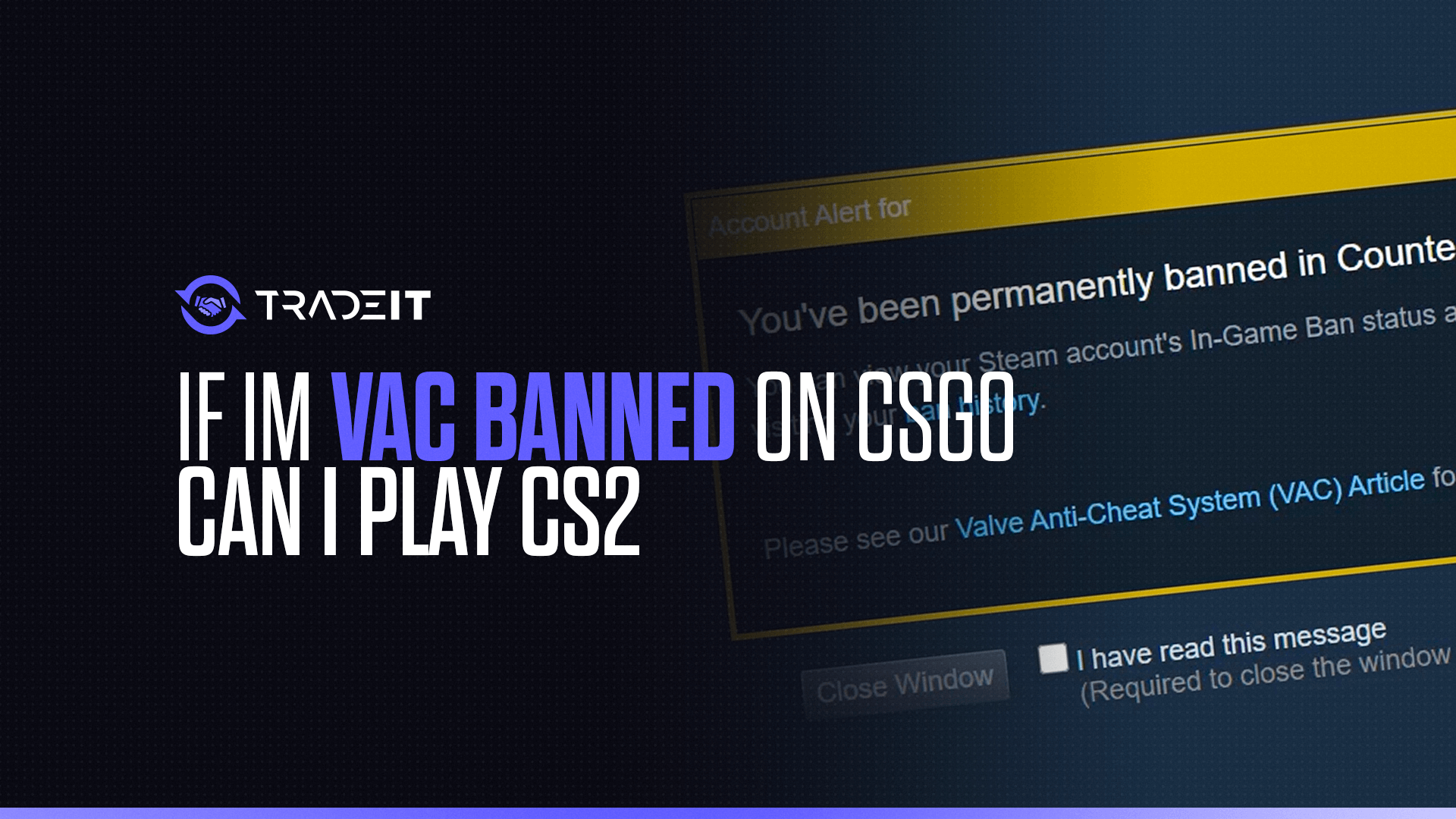CamiForm: Your Source for Diverse Insights
Exploring a world of information across various topics.
VAC Ban or Not: The Hilarious Journey of a CSGO Cheater
Discover the wild and funny escapades of a CSGO cheater navigating the world of VAC bans. A laugh-out-loud journey you won't want to miss!
Top Signs You've Been VAC Banned: How to Spot a Cheater's Downfall
When playing competitive online games, one of the most frustrating experiences is encountering players who cheat. To protect the integrity of the game, many developers implement VAC bans (Valve Anti-Cheat bans) for players caught cheating. Here are the top signs you've been VAC banned: first, you may notice that you can no longer join VAC-secured servers. This means you are effectively locked out of many multiplayer games, as these servers enforce strict anti-cheating measures. If you find yourself unable to play with your usual group, suspect your account may have been flagged.
Another clear indicator is a sudden loss of access to your game inventory. Players who are banned often lose items that they've acquired in-game, disrupting their gaming experience. If your skins or purchased items seem missing, it’s necessary to investigate further. Consider reviewing your account and checking for any emails from the game developer. Remember, staying aware and attentive to these signs can help you take action before it’s too late and ensure you maintain fair play in your gaming endeavors.

Counter-Strike, a popular tactical first-person shooter, has captivated gamers around the world since its inception. Players engage in intense matches where strategy, teamwork, and precision aim are crucial for success. For those looking to enhance their gameplay, utilizing cs2 grenade binds can provide a significant advantage during critical moments in a match.
The Psychology of a CSGO Cheater: Why They Can't Stop
The world of competitive gaming, especially in titles like CSGO, has seen its share of cheating scandals. At the heart of the issue lies the complex psychology of a CSGO cheater. Many players resort to cheats not purely out of a desire to win, but due to the thrill and adrenaline that accompany the act. Cheaters often experience a temporary sense of superiority and excitement, which easily overpowers their moral compass. This rush can create a cycle of dependency, where the high of cheating becomes something they crave, leading them to repeatedly engage in dishonest behavior.
Moreover, the community dynamics play a significant role in the perseverance of cheating. Players involved in cheating often find themselves in echo chambers that normalize their behavior. Peer pressure and the desire for acceptance within certain gaming circles can force individuals to compromise their integrity. They may convince themselves that if others cheat, why shouldn’t they? This collective mindset fosters an environment where cheating is not only accepted but expected, further perpetuating the issue. Understanding these psychological underpinnings is crucial in addressing and combating cheating in competitive environments like CSGO.
Is It Worth Cheating in CSGO? The Risk vs. Reward Analysis
In the world of CSGO, the decision to cheat can be a tempting yet precarious choice for players seeking a competitive edge. While the allure of instant victories and improved stats might seem attractive, it often comes at a significant cost. First and foremost, cheating undermines the integrity of the game and can result in permanent bans from the platform. Not only do cheaters risk losing their hard-earned accounts, but they also face the potential of ruining the gaming experience for others. This raises the question: is the temporary advantage worth the long-term consequences?
Moreover, the risks associated with cheating extend beyond mere bans. The CSGO community has a strong anti-cheat culture, and players caught using cheats face various repercussions including loss of reputation and potential legal actions from game developers. On the other hand, factors such as skill development and fair competition play a crucial role in personal growth in gaming. Engaging genuinely in the game allows players to improve their abilities and enjoy a sense of fulfillment. Hence, while cheating may offer short-term rewards, the long-term implications make it a gamble not worth taking.